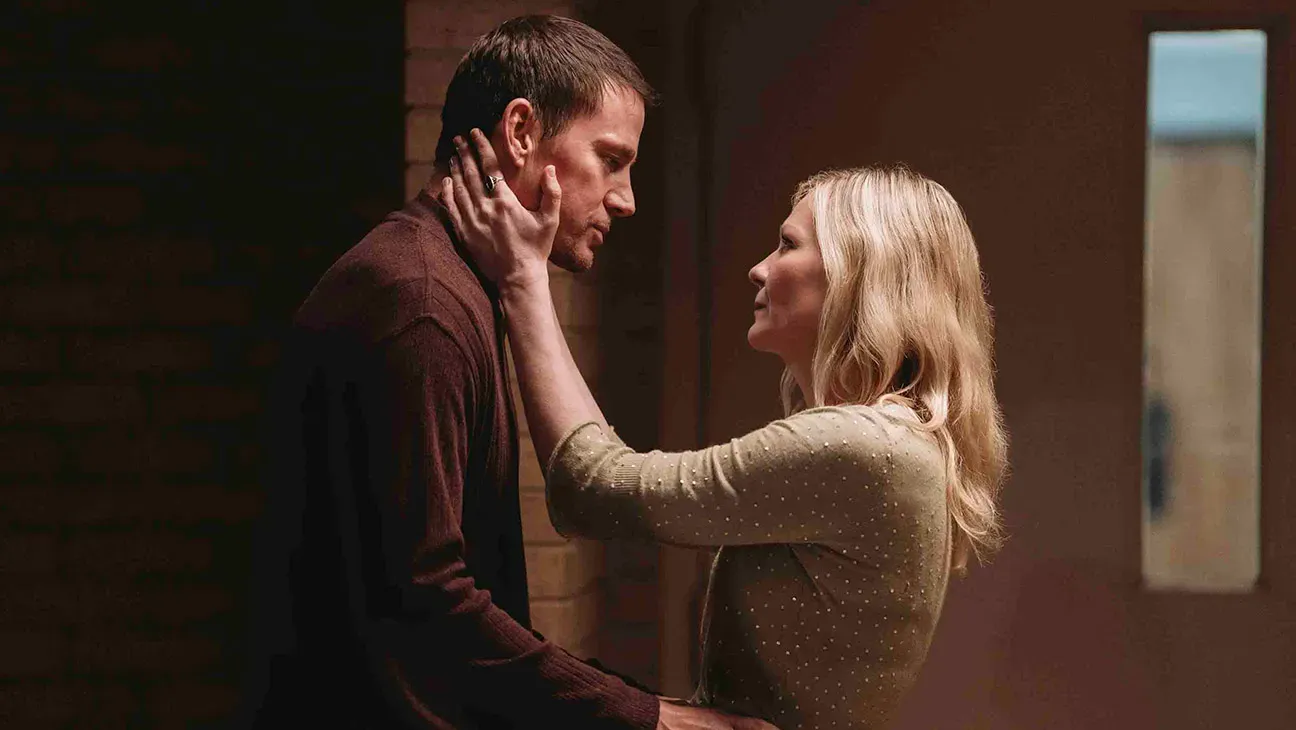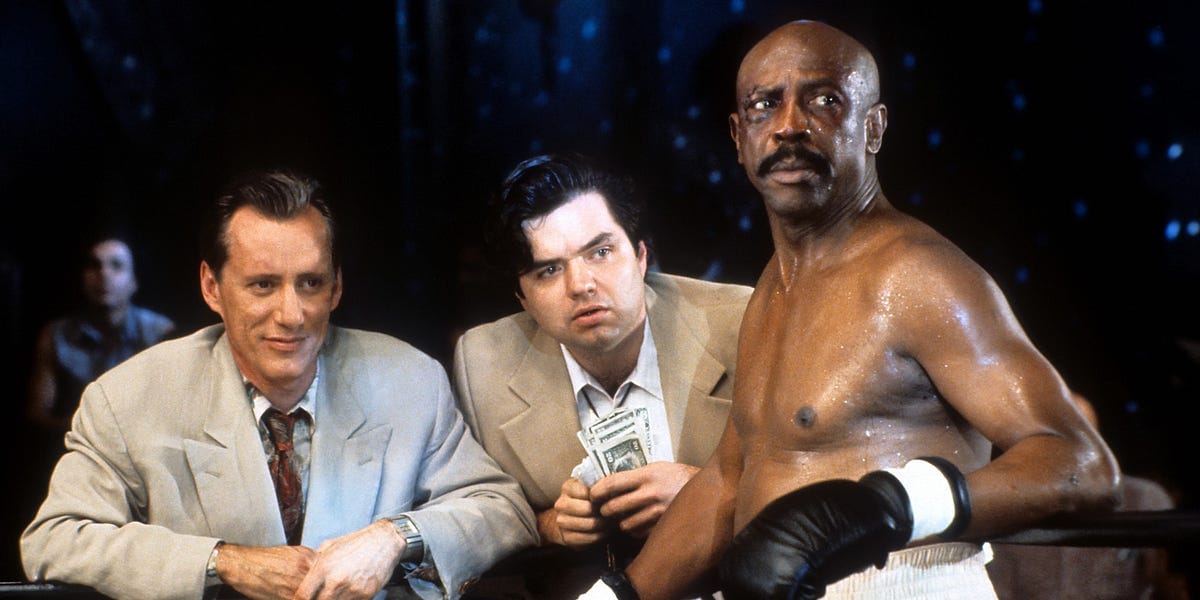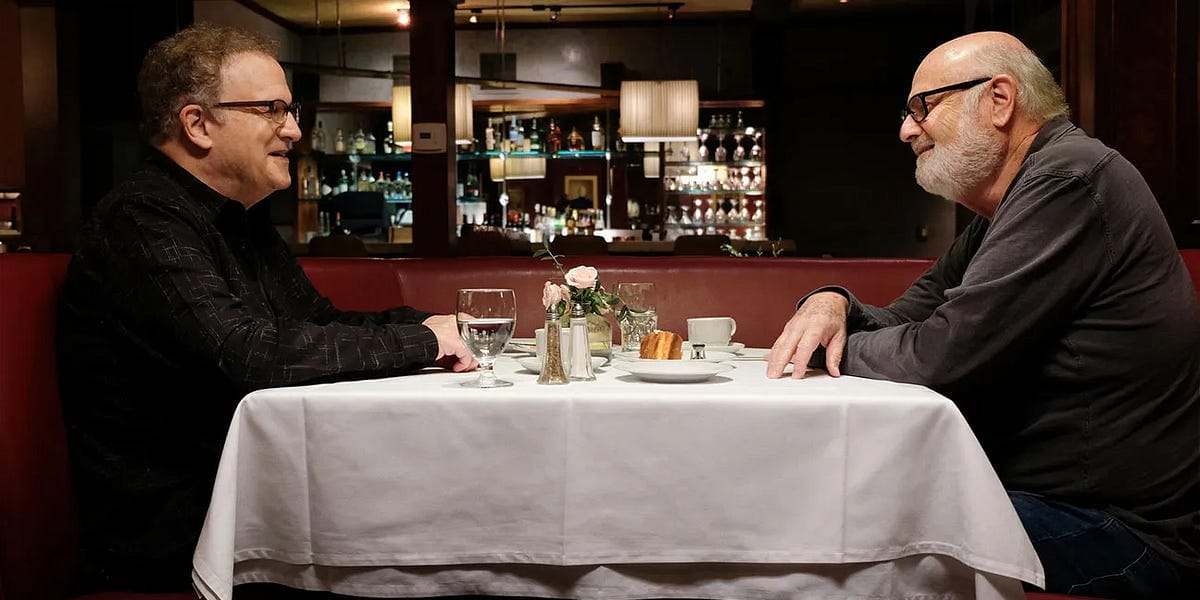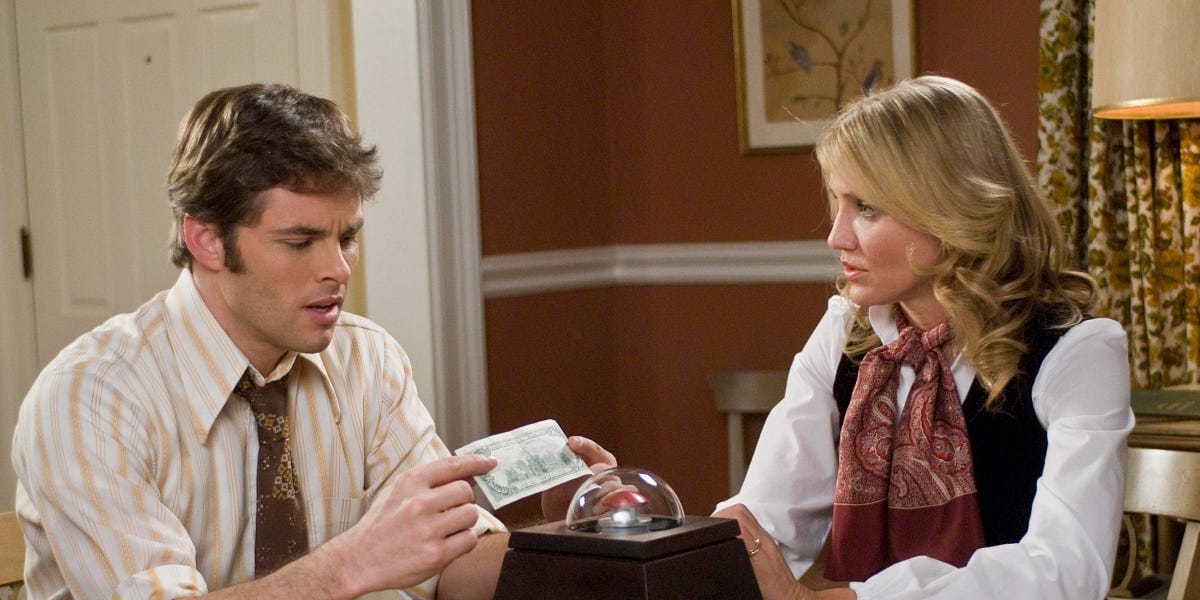In Review: ‘If I Had Legs I’d Kick You,’ ‘Roofman’
This week, a stranger-than-fiction true story gets a down-to-earth treatment and Rose Byrne faces the horrors of motherhood.

Due to the abundance of new releases we're making this one of The Reveal's occasional "Oops! All Reviews" weeks.
If I Had Legs I’d Kick You
Dir. Mary Bronstein
114 min.
If I Had Legs I’d Kick You doesn’t stop until it stops. You are trapped within it until its writer-director, Mary Bronstein, decides to give you a blessed reprieve, partly as an act of mercy but mostly because all movies have to come to an end. For her visceral, darkly comic and at times absurd treatment of a woman on the verge of a nervous breakdown, Bronstein refuses to let the audience take a breath, lest the grim spell that she casts be broken. Much like the Safdie brothers’ Heaven Knows What and Uncut Gems—her husband Ronald is a frequent writing partner with the Safdies, and he and Josh Safdie are among the co-producers here—there’s an ulcerous effect to If I Had Legs I’d Kick You that’s managed through tight, handheld lensing and an aggressive clutter of activity on the soundtrack. It’s about the Sisyphean job of motherhood, an occupation that can’t be quit.
The Reveal is a reader-supported newsletter dedicated to bringing you great essays, reviews and conversation about movies. If you are not paid subscriber, we would love for you to click this button below and join our community.
The camera stays attached like a barnacle to the exceptionally versatile Rose Byrne as Linda, a Long Island psychologist of reasonable means who’s nonetheless facing a series of crises she has increasing trouble managing. The main source of her troubles is her unseen, unnamed daughter, who Bronstein audaciously keeps out of the frame in order to keep the focus on Linda’s efforts to care for her. It’s never exactly clear what dire illness the girl is facing, but Linda has been given a target weight that she cannot hit, despite frequent attempts to feed her and an intravenous bag that nourishes the child through a line in her stomach. Meanwhile other calamities compound her stress, like her own sullen jerk of a therapist (Conan O’Brien), a patient (Danielle Macdonald) overwhelmed by her own newborn, and a rental home flooded with water while her husband is out of town.
Taking up residence in a seedy flophouse, Linda allows herself a little space to play bad-mom at night, slipping out of the room with a baby monitor as her child sleeps and the IV pump churns loudly. If I Had Legs I’d Kick You has the courage to allow Linda to be flawed and a little fucked-up, and it leads to some particularly wonderful scenes with her neighbor (A$AP Rocky), who beckons her to help shop for drugs off the Dark Web. There are times when she’s openly hostile, especially to the clinic doctor (Bronstein) who scolds her sharply for failing to get her daughter’s weight up. Yet there’s little relief or support for her, either, and a mounting sense that she’s not that dissimilar to the new mother she can’t help at her practice.
If I Had Legs I’d Kick You often feels like Uncut Gems if motherhood were a horde of bookies clamoring for payment, and Bronstein adopts some of the same visual language, too, with visions that sparkle and pulse like an Ethiopian opal. The hole in Linda’s ceiling, for one, becomes too obvious a bit of symbolism, a Cronenbergian orifice that resembles a birth canal. Yet the more tangible, down-to-earth conflicts in the film crackle with tension and Bronstein’s careful efforts to relieve that tension, like the sessions with O’Brien’s put-upon therapist, bring some welcome comic beats. Portraits of maternal ambivalence are rare in cinema and Bronstein pushes it to the limit, turning motherhood into a white-knuckle experience with the highest of stakes. — Scott Tobias
If I Legs I'd Kick You opens tonight in limited release.


Roofman
Dir. Derek Cianfrance
126 min.
The true story of Jeffrey Manchester, a former U.S. Army Reserve soldier turned highly specific master-ish thief and jailbreak artist, is a genuine yarn, one that newscasters (and anyone else) might tell with a smile on their face. Starting in the late ’90s, Manchester pulled off a string of robberies, as many as 40 to 60, through the same modus operandi, breaking into McDonald’s locations through the roof at night and sticking up the morning crew for the undeposited cash in the safe. He was known for being polite and mostly nonviolent, and he would make sure the workers wore a coat before locking them into the walk-in refrigerators. He was nicknamed “Roofman” and his mythic exploits were so remarkable that the McDonald’s robberies only take up a small fraction of this Hollywood caper about him.
With the amiable goof Channing Tatum cast as Jeffrey, Roofman sounds like material tailor-made for a filmmaker like Steven Soderbergh, who’s worked often with Tatum and knows his way around a densely plotting crime comedy. The great 2017 Soderbergh-Tatum team-up Logan Lucky, a redneck Ocean’s Eleven about the robbery of the Charlotte motor speedway, even takes place around the same area. Yet the co-writer and director of Roofman is Derek Cianfrance, the skilled but ultra-serious hand behind such arthouse slow-burners as Blue Valentine, The Place Behind the Pines, and The Light Between Oceans, which are all evocative and beautifully acted, but don’t have the zip of a real-life tall tale. With Cianfrance behind the camera, Roofman isn’t exactly dry or humorless, but it’s also not a story he’s telling with a smile on his face. The tone is much more grounded, which takes some adjustment.
Leading a superb ensemble—if nothing else, Cianfrance is terrific with actors—Tatum plays Jeffrey as a basically affable, fun-loving family man who doesn’t have the skills to make a practical living. In the film’s telling, Jeffrey took to robbing McDonald’s because the scheme was like a Big Mac, ready-made and predictable at every location, and he could use the cash to give his daughter what she wants. After getting caught and sentenced in the early part of the film, Jeffrey uses his Army skills to break out of prison, intending to hit up his Army buddy Steve (LaKeith Stanfield) for a passport and flee the country. But while the heat is on, he figures out a way to slip into a Toys ‘R Us and live behind the walls, sneaking onto the sales floor at night and eventually disabling the emergency exit so he can come and go as he pleases.
As local attention spans drift away from him, Jeffrey starts taking greater risks, eventually finding his way into a nearby Presbyterian church and sweet-talking Leigh (Kirsten Dunst), a Toys ‘R Us employee and single mom to two daughters (Good One’s Lily Collias and Kennedy Moyer). In this double life as “John Zorn,” he poses as a government agent to keep questions to a minimum and attempts to re-create some of the life he lost when he was sent to prison the first time. He has genuine feelings for Leigh and her girls, but a shortsightedness about their future and Cianfrance would rather the audience feel the weight of it than chuckle glibly at Jeffrey’s bungling.
Turning Manchester’s story into more of a drama than a comedy feels counterintuitive, and Roofman can feel a little slow and gloppy for missing the laughs. Yet Tatum and Dunst are deeply invested in their roles, and Cianfrance loads up on ace character actors, including Peter Dinklage as a mildly tyrannical Toys ‘R Us manager, Ben Mendelsohn as a gregarious minister, and Juno Temple as Steve’s girlfriend and partner-in-crime. Cinefrance’s evocative treatment of location and working-class spaces, another directorial hallmark, go a long way towards taking this story out of the tabloids and into a more sympathetic view of a man reacting to modest means and scant options. It could just stand to be a little more fun. — Scott Tobias
Roofman opens tonight in theaters everywhere.

We keep reviews free to all readers at The Reveal but reviews are far from all we do. As part of this "Oops! All Reviews" week were unlocking some relevant pieces previously available only to paid subscribers to offer a sense of the wider scope of The Reveal available with a paid subscription.










Discussion